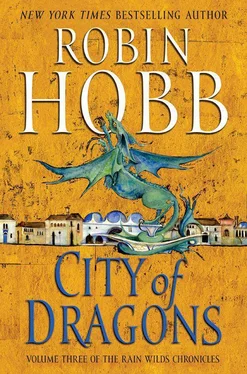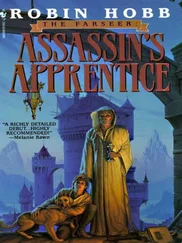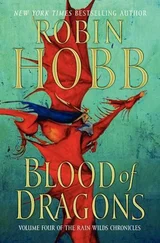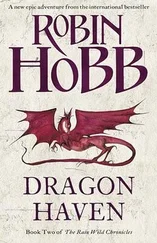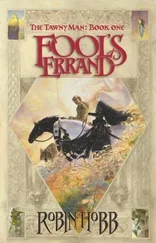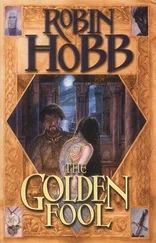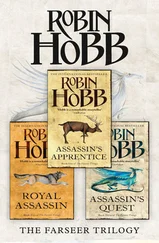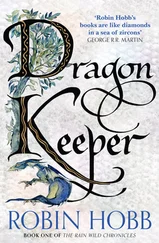“I’ll give priority to booking passage to Trehaug for Redding and me.”
He was halfway to the door when his father spoke quietly but severely. “Book passage for yourself, son. Not for Redding. When a man goes after his runaway wife, he goes alone. He doesn’t take a secretary. Or assistant. Or however you are referring to Redding these days.”
Hest didn’t pause. There were times when he suspected that his father knew much more than he let on. This was such a moment, but if his father only suspected, he would not give himself away. “As you suggest,” he replied in an offhand tone.
He left his father’s study and shut the door firmly behind him. Then he paused to straighten the lace of his cuffs, thinking of a certain wine-red fabric that he had seen at the tailor’s only a day ago, and wondered if he could persuade his mother that a jacket of that fine stuff might win him Alise’s heart. Then the lace of the cuff snagged on his bandage, and a too-familiar welling of anger and fear engulfed him. For an instant, he literally choked on the sensation.
Glancing around, he realized he was looking for Sedric, and he hissed out a breath in disgust with himself. That vicious Chalcedean had brought his former companion back to mind just when Hest had succeeded in banishing him from his thoughts. It would have been a comfort, a great comfort, to have Sedric at his side, he thought, and then amended that to, Sedric as he once was . Not the Sedric who had argued and defied him, to the point of provoking his temper and making Hest send him off on that stupid voyage. The tractable and doting Sedric, the Sedric who was always at his disposal, competent, calm, clever even. Something very like a twinge of regret passed through Hest, and he very nearly blamed himself for how Sedric had changed. He had pushed him too far.
Then he shook his head, and a smile of remembered pleasure twisted his mouth. Sedric had enjoyed being pushed; Hest had, perhaps, erred in how far he had pushed the man, but Sedric had been a party to it. Not Hest’s fault. Everything had an end, and they had simply found theirs. Hest could have accepted it with equanimity if only the man had not run off with his wife, caused a scandal, and perhaps endangered his claim to one-fifteenth of an undiscovered, unlooted Elderling city.
“Shall we go?” his mother proposed.
He turned to look at her. He had not expected her to be ready so promptly. How swiftly she had changed into more stylish dress suggested that she was extremely bored and pleased for the excuse for an outing. And a bored mother was often a generous mother. Clearly there would be a luncheon involved in this outing, perhaps at one of the better places in Bingtown. He would encourage her to treat herself well and flatter her in her purchases. He knew that he could expect full reciprocation from her in that regard. He smiled. “Yes. Let’s.”
Bates had operated with his usual efficiency. The smaller family carriage with his mother’s favorite team of white horses was at the front door. Hest handed her up into the upholstered interior and then followed her in. They did not have far to go, and the weather was not so terrible, but his mother enjoyed being seen descending from her carriage into the busy market. The coachman would wait for them, letting all know that Trader Finbok’s wife was at the market.
As soon as the carriage was in motion, Hest cleared his throat. “Father suggested that we first book my passage to the Rain Wilds, before we do anything else.”
She frowned. He had known that such a stop would not please her. It would take them down to the ships docks, and she would have a long boring wait as he exchanged pleasantries, found out which liveships were going up the Rain Wild River, and when, and then decided which to take passage on. Not all carried passengers. Most of their valuable cargo space was devoted to the goods they carried. Upriver went all the necessities of life that the Rain Wilders could not create or harvest for themselves. And that was almost everything. Downriver came the rare and the unusual, the magical artifacts of the ancient Elderling cities that the Rain Wild Traders had been plundering for generations. The long-buried cities were difficult to mine, and dangerous, but the value of the goods that came out of them was what had created Bingtown’s reputation as a town where “if a man could imagine it, he could buy it in Bingtown.” Was Trehaug almost mined out? There had been rumors that the supply of wonders would soon come to an end. The discovery of more buried ruins at Cassarick had been heralded as a renewal of the fountain of Elderling goods, but Hest knew what few cared to talk about: Cassarick had been a much smaller city and did not seem to have withstood the ravages of time and damp as Trehaug had. Which made the theoretical discovery of Kelsingra all the more tempting.
“No. That’s foolish.”
He had almost forgotten what had begun the conversation in his wandering thoughts. “Foolish?” he asked.
“How can you book passage when you don’t know when your new wardrobe will be ready? Or when you will find the perfect gifts to turn her silly head back to you? No, Hest, we will visit the Great Market first and lay all the groundwork for your renewed courtship. Later, when we know when the tailors will be finished, then you can go on your own to book your passage. That is a much more practical plan.”
“As you wish, Mother. I only hope Father agrees with you.” He sounded appropriately dubious about crossing his father.
“Oh, let me worry about that. I’ll ask him if it would have been better for you to buy a ticket and then not be able to sail on that date. He rushes into things too much, your father does. He always has. And he does not listen to me at all. If he had, he would know that there are swifter ways to travel up the Rain Wild River now. There are these new boats, Jamaillian made, and their hulls are specially treated to withstand the river’s acid. And they are not big sailing ships like our liveships, but narrow river craft, shallow draught, designed to be swift when rowed against a current yet have room for cargoes and passengers. What is it they’re calling them… Impervious. Because of the hulls. Your father thinks them a bad idea; he says that our Bingtown liveships must keep a monopoly on trade on the river if Bingtown is to survive. Luckily there are other Traders who are more forward looking. And you shall be among them, when you book passage up the river on one.
“So. That’s settled. Now. Here’s our day. We’ll do a bit of shopping and then stop for a cup of tea. There’s a new place that I’ve heard is marvelous. Teas from beyond the Pirate Isles! They grind their spices right at your table, and pour the boiling water right into little pots, just the right size to hold two cups of tea. Trader Morno told me all about it, and I simply must see it for myself. Then we can visit your tailor.”
“As you wish,” he complied contentedly. The prospect of being among the first to try the new transport was appealing. And he had no wish to book passage until he had conferred with his own rumormongers. His first question of them would be, why had his father heard these things before he had?
Because Sedric hadn’t been there to bid him pay attention and prattle endlessly at breakfast about what he thought was most important for Hest to know. With a scowl, he banished that thought.
The Great Market of Bingtown had been built, not on a square, but on an immense circular plaza. It had changed a great deal since the Chalcedeans had made a very enthusiastic effort to invade and destroy the city all on one night. Hest liked some of the improvements. The tall, old-fashioned warehouses on the waterfront had blocked the view of the sea. Many of those had burned in the attack, and the Council had seen fit to decree that the newer warehouses be built with a lower profile. Now the Great Market had a wonderful view of the harbor. Many of the shops and businesses that had been destroyed or damaged in the battle had rebuilt since then, and the last few years of recovering prosperity had meant that the Great Market now had a fresh new look.
Читать дальше
